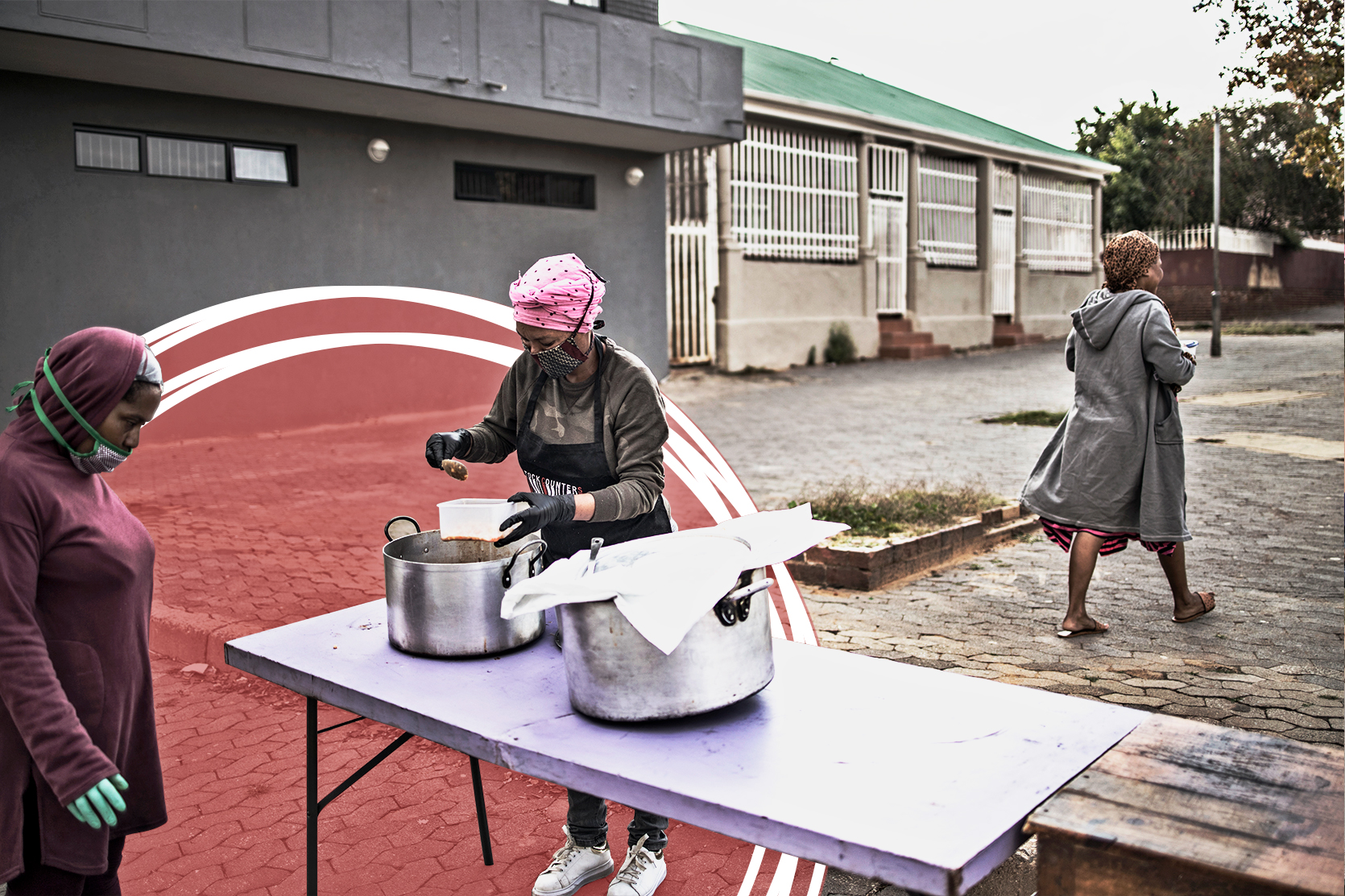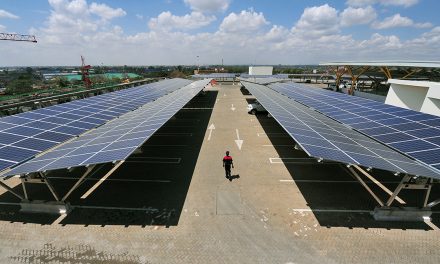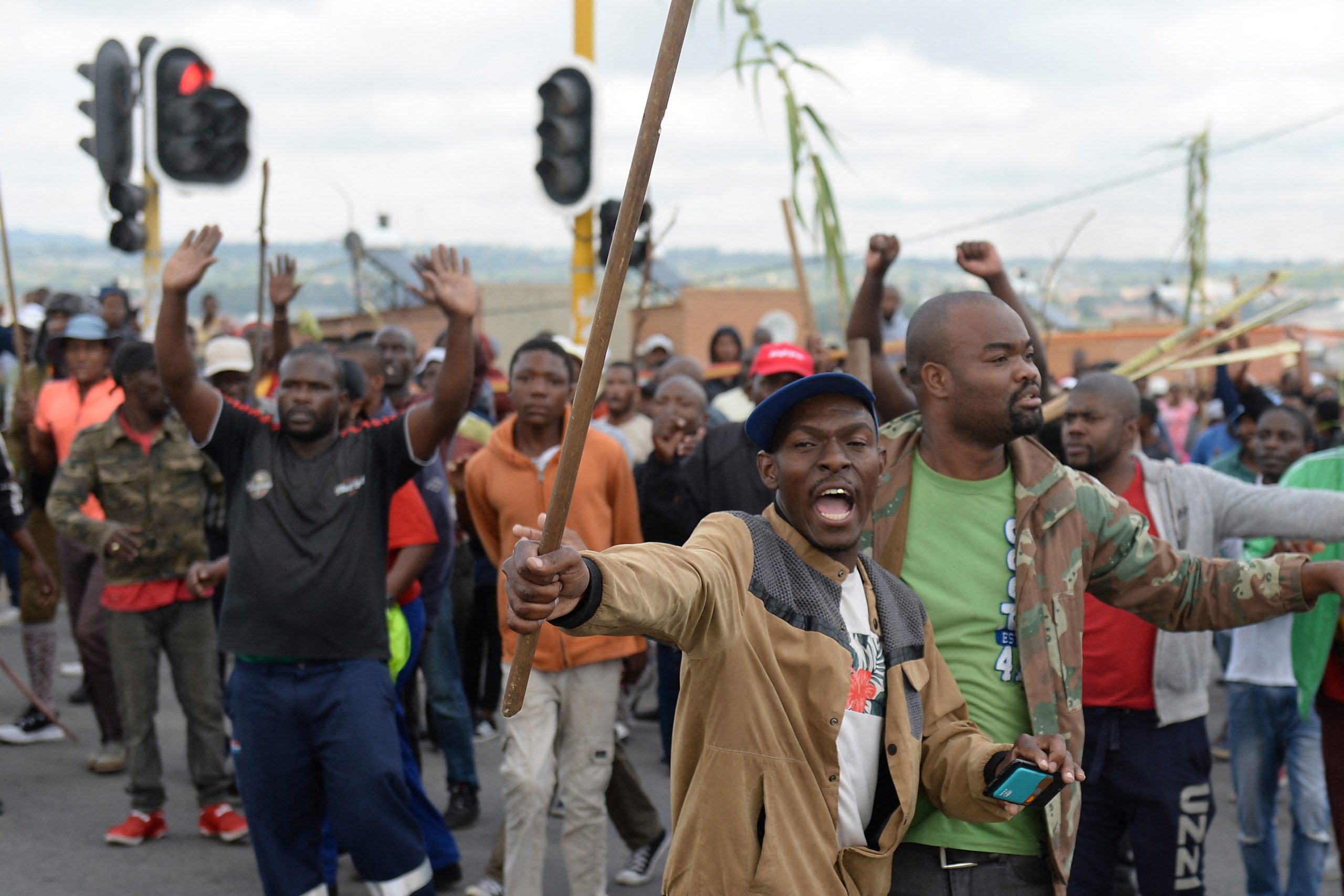
South Africa already had a hunger crisis before the Covid-19 pandemic struck.
As early as 2014, Oxfam reported that one in four South Africans went to bed hungry every day. About 17 million South Africans rely on the child grant for their household income and food security. The scene was set for a food security crisis. And Covid-19 delivered.
Few disagree about the necessity for a lockdown despite the tension to balance the needs of a health crisis and the resulting economic crisis. As Covid-19 dealt a crushing blow to South Africa’s already struggling economy, the country’s poor found themselves stuck indoors without access to social assistance.
As early as 2014, Oxfam reported that one in four South Africans went to bed hungry every day.
South Africa’s elite have a loud voice — hence the resounding echoes from those upset about smoking and drinking and the muted outcry on the challenges still facing the poor with the huge impact on child nutrition as families go hungry.
When schools closed on 18 March – one week before the start of the lockdown — the National School Nutrition Programme (NSNP) was suspended and millions of children lost their daily nutritious meals. Civil society organisations — churches, NGOs, volunteers — took it upon themselves to support the needy. Government itself set aside up to R50 billion for social assistance to help low-income South Africans survive the shutdown of the economy. But the need is great.
About 17 million South Africans rely on the child grant for their household income and food security.
On June 12 SECTION27 and the Equal Education Law Centre (EELC) approached the courts in a bid to force government to continue feeding schemes for all children — not just the Grade 7 and Grade 12 pupils back at school – in recognition that these school-based meals were essential.
Affidavits from pupils told a story of extreme hunger and poverty: “My family and I do not have enough food at home,” said Grade 12 learner Zukiswa (18). “Before school closures commenced on 18 March, 2020, my school was offering the daily meals by way of the NSNP to all the learners enrolled at my school. I too was a recipient of the meals that were distributed three times per day.”
But from that day in March, when Zukiswa’s school closed (like all other public schools in South Africa), she did not receive any meals through the NSNP, according to her account. She also did not receive food parcels from a community feeding scheme. Her story was repeated over and over: without food at home, these school meals are the only hope for sustenance for many children.
Without food at home, these school meals are the only hope for sustenance for many children.
According to Professor Jeremy Seekings of the University of Cape Town, about nine million children were deprived of food when government shut down school feeding schemes under the NSNP during the lockdown. Seekings is director of the Centre for Social Science Research at the University of Cape Town, which supported the court application.
He said food parcels were urgently needed under the lockdown by households with no other income, others that needed to supplement existing grants, and yet others who were waiting for grant payments or who relied in part on the school meals provided to children. “The national government has failed these many households,” Seekings said bluntly.
The court case eventually forced government to resume the programmes. Acting Deputy Judge President Sulet Potterill ruled in a declaratory order that Basic Education Minister Angie Motshekga and eight education MECs were in breach of their constitutional duties for failing to roll out the NSNP to all eligible learners — whether back at school or at home. The NSNP was “literally a lifesaving programme for the poorest of the poor child by providing them with at least one nutritious meal a day while being educated,” said Judge Potterill.
“The national government has failed these many households,” Seekings said bluntly.
Indeed, President Cyril Ramaphosa himself said: “Alleviating hunger is not an act of charity. It is an imperative for any society that is founded on respect for human rights.”
Since then, the South African government has attempted to provide some social relief. Its own statistics show that more than three million unemployed South Africans were paid a special Covid-19 social relief of distress grant of R350 a month after an extremely bumpy start. In fact, it took about six weeks before any of these grants were paid out. This special Covid-19 grant was put in place to benefit 10 to 15 million unemployed people without other income, existing grants, or UIF payments, for a period of six months.
“Alleviating hunger is not an act of charity. It is an imperative for any society that is founded on respect for human rights.” – President Cyril Ramaphosa
The Child Support Grant (CSG) was increased by R300 per child in May 2020, and then by R500 per caregiver for the next five months. The Department of Social Development said it had increased access to food relief from an initial 1.1 million to 3.3 million to ensure food security for individuals and families impacted negatively by the national lockdown. By July 7, some 7,542,049 people had applied for the Special Covid-19 social relief distress grant, with more than R1 billion paid out.
In terms of wage support, the Temporary Employer/Employee Relief Scheme (TERS) offered funds to businesses (or directly to employees) to pay wages. These are paid on a sliding scale of 38% of a worker’s monthly wage (for high-wage earners) to 60% (for low-wage earners). The minimum pay-out is R3,500 per month, for a period of three months. By June 19, 2020, 355,267 employers and 2.4 million employees had been paid.
The official statistical office, StatsSA, reported unemployment rose to 30.1% in the first quarter of the year — even before the lockdown was in full swing. Many more jobs have been lost since then. In the absence of jobs growth, more and more South Africans will rely on government to generate income.
By July 7, some 7,542,049 people had applied for the Special Covid-19 social relief distress grant, with more than R1 billion paid out.
The widespread need for support has revived discussions about the viability of a Basic Income Grant (BIG) as first recommended by the Taylor Report as early as 2002. Such a grant would support all South Africans between the ages of 18 – 59 who do not qualify for the child grant (under 18) or old age grants (over 60).
South Africa has long promoted a rights-based approach to social protection. While social grants alleviate poverty and inequality, there are concerns that the ruling party has long used them as a political tool. Indeed, in recent elections it has claimed that the main opposition party would take them away if elected.
There have been cases of corruption within the distribution processes, which some take as an argument against extending the existing social protection systems. And recent reports alleging that family members of senior ruling party figures have benefited from Covid-19-related tenders have enraged the public further.
The widespread need for support has revived discussions about the viability of a Basic Income Grant (BIG).
South African taxpayers are balking at suggestions of additional pressure from the fiscus. Some associate grants with stereotypes of people not wanting to work. At another level of discourse, critics say the ANC has failed to grow the economy and create jobs, thus creating a dependent constituency and perpetuating the very poverty that it alleviates through the grants.
Meanwhile, as noted in my last blog, South Africa’s Covid-19 infection rates are rocketing — disrupting health services, putting psychological pressure on everyone, and exacerbating our food security crisis.
Ultimately, the surest way to reduce poverty will be to create jobs. But that, if it happens, is for a future, post-Covid world. In the current economic climate the main challenge is how to support the poorest of the poor. If we truly want to tackle inequality, reduce poverty and support smaller businesses, then it might be time to think BIG.
We’d love to hear from you! Join The Wicked Conversation by leaving your comments below, or send your letter to the editor to richard@gga.org.
Paula Fray is a leading media trainer and coach who works across Africa and the Middle East. The former regional director for Inter Press Service Africa, she is the CEO of the pan-African communications company frayintermedia, which has worked to improve the quality of journalism in Africa since 2005.







